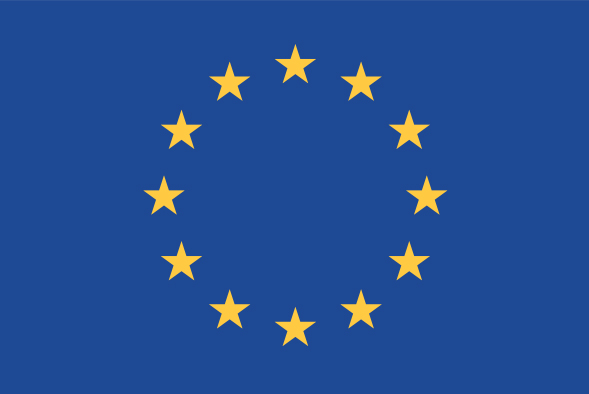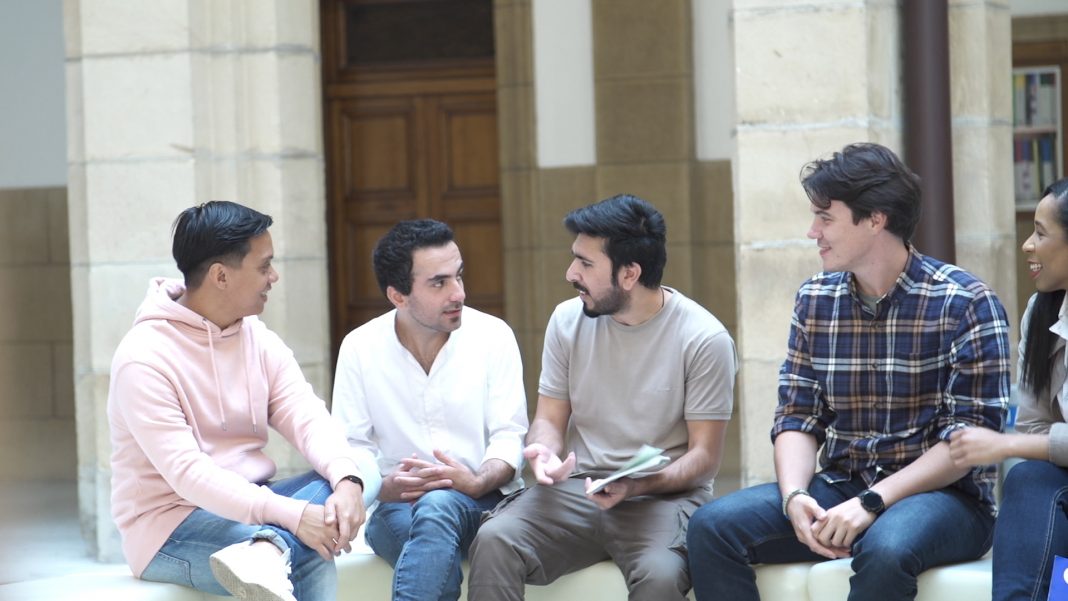Through its two Horizon 2020 Marie Sklodowska-Curie COFUND projects, DEUSTO is providing up to 35 doctoral training fellowships between 2016 and 2025 to attract excellent doctoral candidates from all over the world
Over the last decades the University of Deusto (DEUSTO) has built up a dynamic, innovative and attractive research ecosystem, designed and implemented in co-creation with both local and international stakeholders.
Supporting young researchers through DEUSTO’s two MSCA projectsThrough its two Horizon 2020 Marie Sklodowska-Curie COFUND projects DIRS and 6i-DIRS, named after the Deusto International Research School, and financed by the European Commission, DEUSTO is providing up to 35 doctoral training fellowships between 2016 and 2025 to attract excellent doctoral candidates from all over the world.
Why are these doctoral training projects so important?
Firmly grounded in research and education excellence, innovation, social responsibility and impact, our objective is to help outstanding Early Stage Researchers generate interdisciplinary, international and intersectoral projects and dissertations, supporting and broadening their career prospects and promoting the social impact of their scientific contributions.
The DIRS project, running from 2016 to 2021, aimed at increasing the international, intersectoral and interdisciplinary mobility of its researchers, in line with the principles set out in the European Charter for Researchers, the Code of Conduct for the Recruitment of Researchers and with the EU Principles for Innovative Doctoral Training. Thanks to this project, 16 young researchers were equipped with new knowledge and skills, through mobility across borders and exposure to different sectors and disciplines, while being supported by DEUSTO’s research and training environment that encouraged and enabled cooperation, co-creation and collegiality.
Building on the success of the DIRS project, DEUSTO is currently running its second MSCA, 6i-DIRS, offering 19 Early Stage Researchers the opportunity to develop their own PhD projects, tackling some of the most pressing issues of our societies. They are hosted by high-level research teams, many of them recognised by the Basque Government, benefitting from the knowledge, experience, collaboration and international networks of senior researchers and fellow PhD candidates.
The 6i research model
The 6i-DIRS project is built on the 6 “i” research model designed by DEUSTO that considers research talent as a fundamental axis of scientific policy, and incorporates the combination of international, interdisciplinary, intersectoral, impactful, innovative and inclusive working methodologies and dimensions:
- Attracting international talent:
- DEUSTO implements policies for the attraction of highly-skilled international researchers into an expanding Research & Innovation arena
- Offering an attractive interdisciplinary research environment:
- DEUSTO research and training programme encompasses 7 doctoral programmes and 26 excellence research teams with 5 Interdisciplinary Research Platforms (on Ageing and Wellbeing, Cultural and Creative Cities and Communities, Gender, Social Justice and Inclusion, and Strengthening Citizen Participation) together with 4 interdisciplinary areas boosted by the Research and Innovation Strategy for Smart Specialisation by the Basque Government (Health, Energy, Industry 4.0 and Territory)
- Enabling intersectoral collaboration with external agents:
- Deusto Research has a network of more than 1500 organisations from all over the world
- Driving research for social impact:
- Training excellent researchers to help solving glocal challenges in alignment with United Nations Sustainable Development Goals, European Union policies and national and regional priorities.
- Fostering a creative climate for innovative research
- Combining high-quality training with hands-on experience in innovative research projects for ground-breaking solutions
- Promoting an inclusive research environment:
- A diverse and multicultural research environment providing equal opportunities.
This 6i model represents a growing attractive collaborative ecosystem for boosting impact driven research, which has been a key priority in DEUSTO’s Strategic Plan since 2018. Its Master Plan understands social impact as the social, cultural, environmental and economic returns of research results and products, and highlights the relevance of formulating and measuring DEUSTO`s projects’ social impact, while supporting them through targeted actions and improving their external dissemination. These three main objectives, which continue to occupy a prominent place in the new Strategic Plan of 2022, were born out of a growing demand for closer cooperation and co-creation between universities and non-academic social agents to address societal challenges in a comprehensive way.
In line with that effort, the 6i-DIRS project has placed social impact at its heart since its conception. There has been a strong emphasis on encouraging our Early Stage Researchers to reflect on the transformative nature of their research projects, to consider how they contribute to the knowledge field beyond scientific impact, and the possible uptake and exploitation of the results by relevant stakeholders. Their research projects range from analysing the emergence and operation of different forms of energy communities towards energy system transition; the impact of disrupted work and digitalization on women’s employment trajectory in the post-covid19 era; or value transition and its effect on the political participation of young people – just to mention a few. By adhering to the Open Access policies, a broader access to scientific information and improved transparency is ensured that can bridge the gap between the scientific field and civil society, facilitating collaboration in the future.
Doctoral training for a new generation of researchers
Thanks to the research-training programme offered by DEUSTO in the framework of the 6i-DIRS project, our Early Stage Researchers acquire a combination of new skills, research- related and transferable ones, and an innovative mindset attentive to the needs of society that will enhance their future employability and strengthen the sustainability of their careers. They represent the missing link between scientific fields and different sectors, because they will be able to integrate a diversity of approaches, methodologies and concepts, and navigate between academia and the non-academic environment.

In addition, a number of institutions back and co-finance this project. The article reflects only the authors’ view and the Agency and the Commission are not responsible for any use that may be made of the information it contains.
This added value will benefit the institutions and companies in which they will find employment in the future and society as a whole. This objective is further enhanced by the strategies that are being developed by the Deusto International Research School to increase the visibility of the competences acquired by researchers after the completion of their doctoral programme.
Such opportunities as the Marie Sklodowska-Curie Action programme strengthen DEUSTO’s contribution to help build Europe’s capacity for research and innovation by training a new generation of researchers able to think out of the box and to contribute to solving current societal challenges.

This work is licensed under Creative Commons Attribution-NonCommercial-NoDerivatives 4.0 International.


